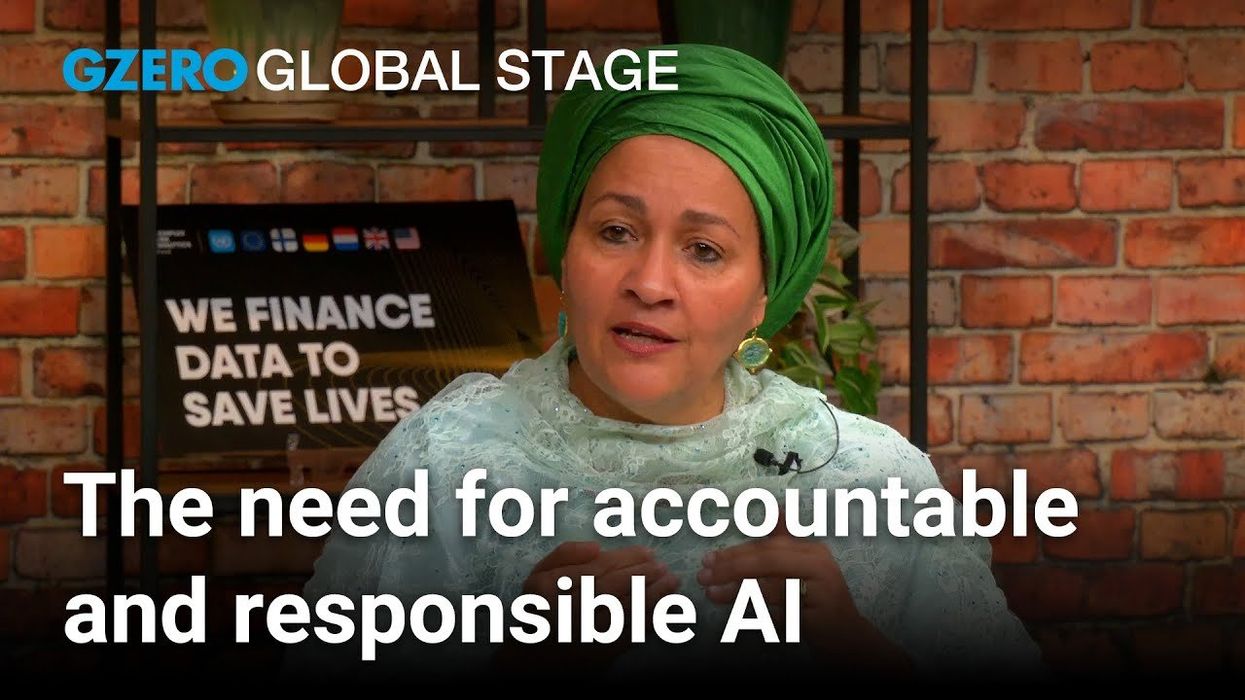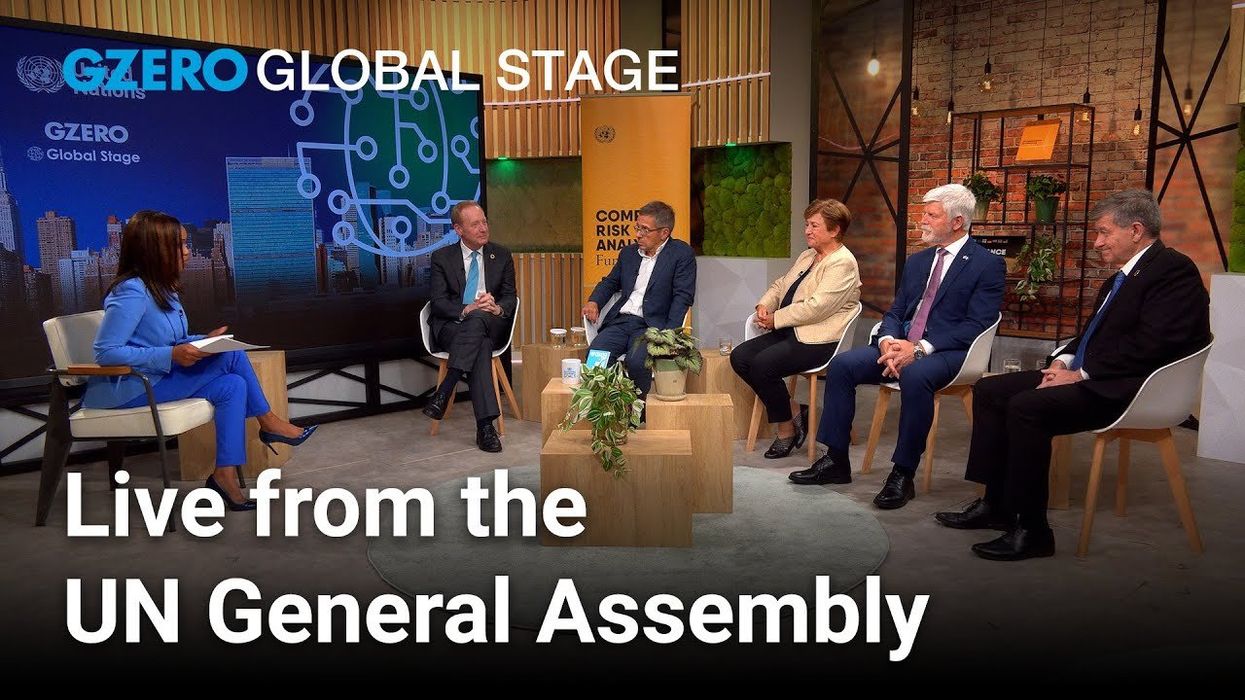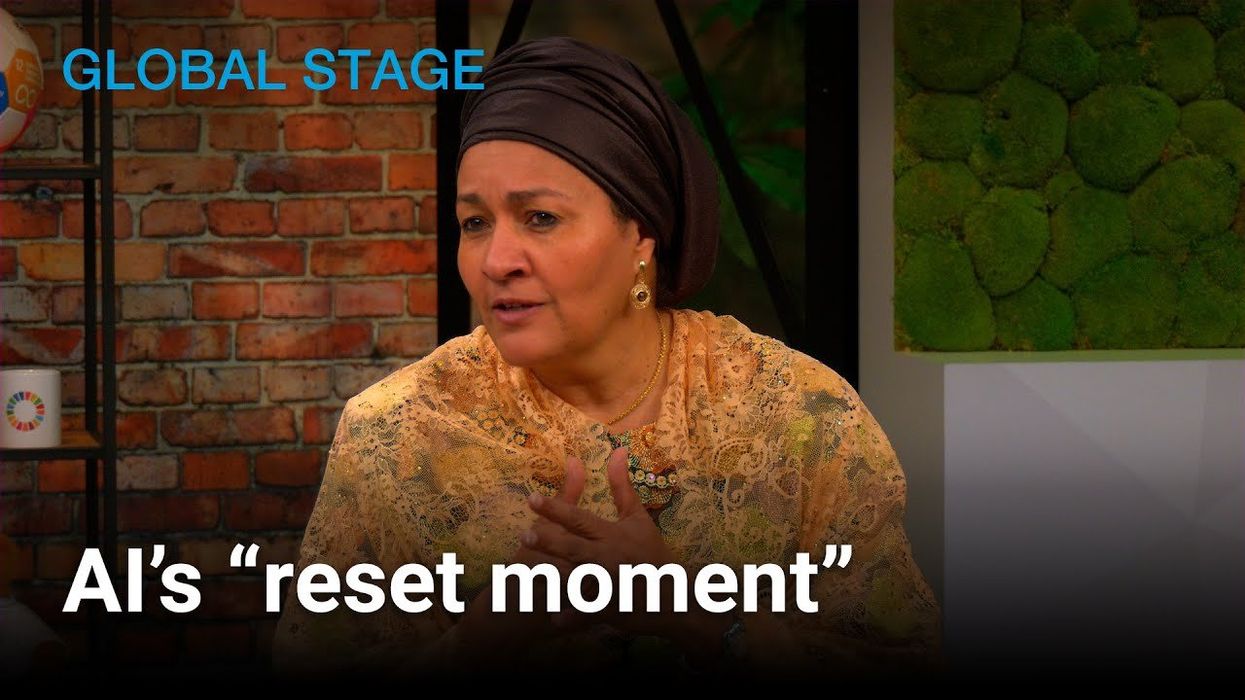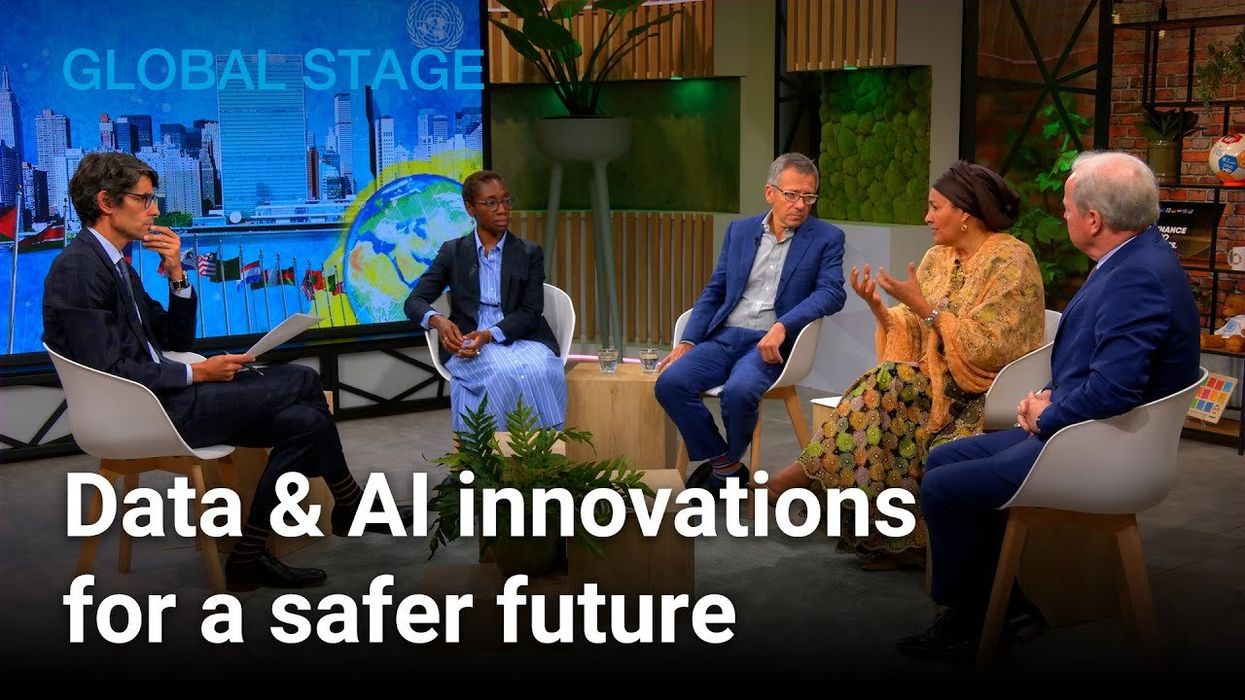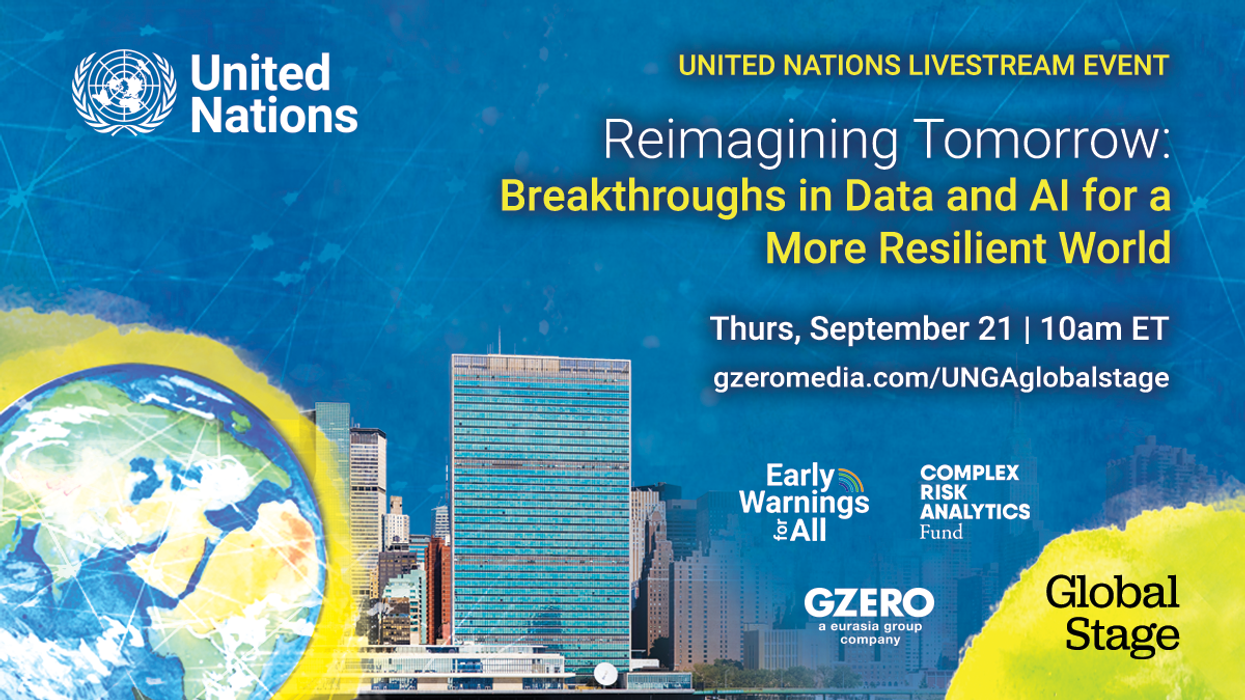UN General Assembly
Ian Bremmer and Amina Mohammed on the promise and peril of AI
In a GZERO Global Stage discussion at the 79th UN General Assembly, Ian Bremmer and Amina Mohammed emphasized the potential of artificial intelligence (AI) to drive progress towards the Sustainable Development Goals (SDGs) and address global inequities.
Oct 06, 2024
